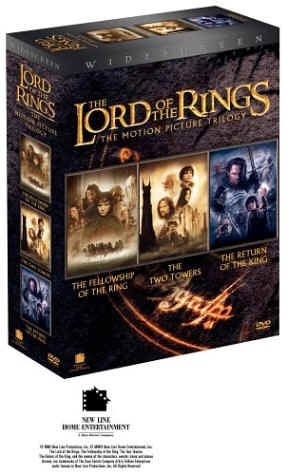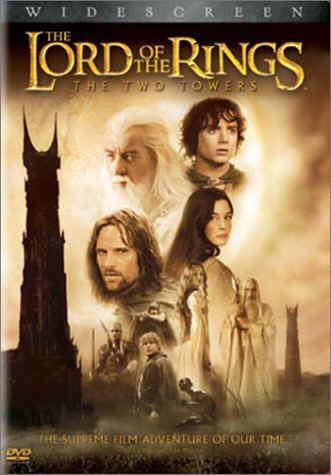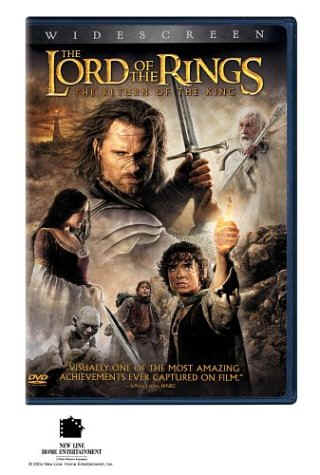
|
LITR 4533: |
|
|
Genre Presentation 2004 |
Robert Lawing
Fantasy Novels: Lord of the Box Office?

Definitions:
Fantasy novel. Any novel that is disengaged from reality. Often such novels are set in nonexistent worlds, such as under the earth, in a fairyland, on the moon, etc. The characters are often something other than human or include nonhuman characters. Virtual Salt Glossary of Literary Terms.
Example: The Lord of the Rings by J.R.R. Tolkien, film trilogy directed by Peter Jackson
Representation: Narrative + Dialogue; the narrator provides a great deal of description and back story, while the vast cast of characters engage in dialogue with one another (or themselves, considering Gollum/Smeagol).
Narrative: Romance (Frodo leaves home and travels to the other end of the continent to destroy the one ring, while Aragorn learns to become a king)
Tragedy (Frodo is poisoned by the corrupting power of the ring, to the point that he alone cannot destroy it. Boromir is tempted, reconciles, and dies defending Frodo. Gollum is destroyed by his own greed, taking the ring with him. Also, there are many, many more deaths and lots of destruction.)
Subject: War, Heroism, Mythology
Identifiable
Highlights:
Fantasy: Hobbits are non-human, as are orcs, dwarves, elves, and trolls. Also, there are humans running about, which highlights this difference.
Tragedy: Aragorn and Arwen’s doomed love; Gollum’s death; the slaying of Boromir; Frodo’s slow corruption
Romance: The ring is destroyed, Aragorn is king, and the hobbits go home
Alternative Names/Related Genres: Epic, Mythology
Additional Examples: The continuing Harry Potter sequence, the Dune sequence
Questions: Determining The Lord of the Rings to be an epic fantasy is no work at all. What I am actually interested in is fantasy novels being adapted to the big screen. The Return of the King received eleven Academy Awards, winning in every category for which it was nominated. On Friday, Harry Potter and the Prisoner of Azkaban opened. The Stepford Wives and I, Robot will also be released this summer. So now, some questions:
1) Why do you think fantasy adaptations have become such a success in film now? Do they exercise the new production effects, or is it the strong writing of the novels? Or something else entirely, such as pre-established fan base?
2) From Elaine Cates in 2002: Do you believe fairy tales are an important or influential asset in teaching literature to young children?
3) When Tolkien was writing his works, he was attempting to create a modern mythology. Do you feel that the adaptation of works, such as Rings and Harry Potter is helping this development? Why or why not?



